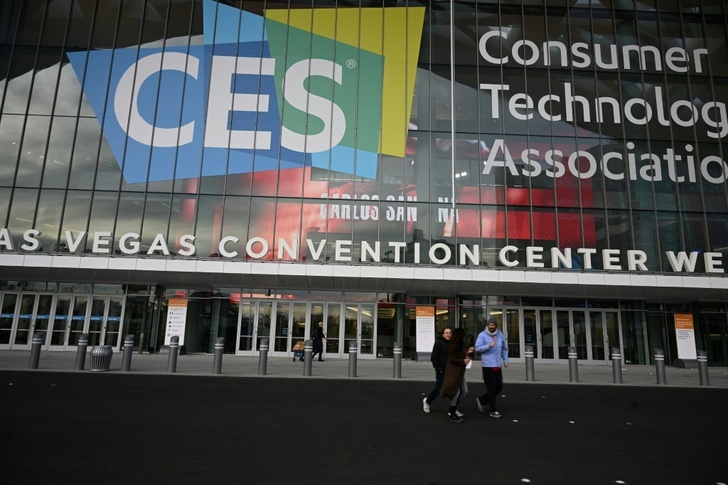The annual CES consumer electronics extravaganza throws open its doors in Las Vegas on Thursday as the industry looks to the latest innovations to help cure the pain from an ailing global economy.
High inflation, lingering supply chain troubles and tech company layoffs provide a dark backdrop for technology's premier trade show where more than 100,000 attendees are expected from around the world until Sunday.
Consumer Technology Association research director Steve Koenig reminded CES goers of previous innovations from smartphones to high-speed internet that soared to success after the "last big economic downturn" more than a decade ago.
"This time, I think the powerful new waves of technological change that will really remedy inflation and restore global GDP growth will come from the enterprise side," Koenig said during a presentation by the CTA, which runs CES.
These will include robotics to make workplaces more efficient; on-the-job virtual reality, and automated vehicles such as tractors that tend to farmland without drivers on board, according to Koenig.
Technology, thanks to increased productivity, "is a deflationary force in the global economy," underlined Gary Shapiro, president and CEO of CTA.
- Homes and cars -
Spreading out from the Las Vegas convention center to ballrooms in an array of hotels on the famous Sin City strip, CES will have televisions, electric roller skates, self-piloting baby strollers and more aimed at wowing showgoers.
While major TV makers including LG, Samsung and TCL will have stunning displays, "gone are the days" when CES was first and foremost about TVs, laptops and gadgets, according to Forrester principal analyst Thomas Husson.

"Don’t get me wrong, there is no doubt we will continue to see a ton of robotic toys and gadgets."
CES has, however, increasingly become a place for showing off electric cars (EVs) that are becoming internet-linked computers on wheels, analysts insisted.
"Beyond EVs, the recent US laws like the Inflation Reduction Act (IRA) will spark more interest in sustainability innovation," Husson said.
This was a reference to the US government's recently passed IRA that is expected to pour hundreds of billions of dollars into green technology and other climate friendly projects.
"That’s definitely the area to expect the most disruptive innovation – even though I fear too little will be announced (at CES)."
- Lingering Covid -
While CES organizers say show attendance is taking "another step toward a return to normal, pre-pandemic levels" there is a lingering Covid effect.

TV and appliance makers as well as startups at the forefront of artificial intelligence have returned to CES this go-around, with Meta letting people try its latest virtual reality gear and Google showing off its own smart home offerings.
South Korean giant Samsung unveiled a new line-up of televisions, along with kitchen appliances infused with artificial intelligence to work with other connected devices and online platforms.
LG Electronics unveiled an OLED television it touted as the first wire-free and voice commanded TV for the consumer market.
"The M3 comes with a separate Zero Connect box that sends video and audio signals wirelessly to LG's cinematic, 97-inch screen," the company said.
- Tight budgets -
Amid the economic gloom, companies at CES looking to woo consumers will need to make sure prices appeal to people struggling with inflation and, perhaps, a bit weary of living online during the pandemic.
The CTA estimates that spending on consumer electronics and services in the United States this year will fall to $485 billion, lower than the record $512 billion in 2021.
Still, while "looming recession and inflation will weigh on household budgets" tech industry revenues are expected to remain higher than pre-pandemic figures, according to the association.
Many tech firms flourished during the pandemic, hiring in droves. As lifestyles began easing back to normal, those firms began laying off employees and tightening budgets.
But Koenig said that the economic conditions masked a continued lack of qualified workers.
gc-juj/arp
© Agence France-Presse
Your content is great. However, if any of the content contained herein violates any rights of yours, including those of copyright, please contact us immediately by e-mail at media[@]kissrpr.com.
Source: Story.KISSPR.com

